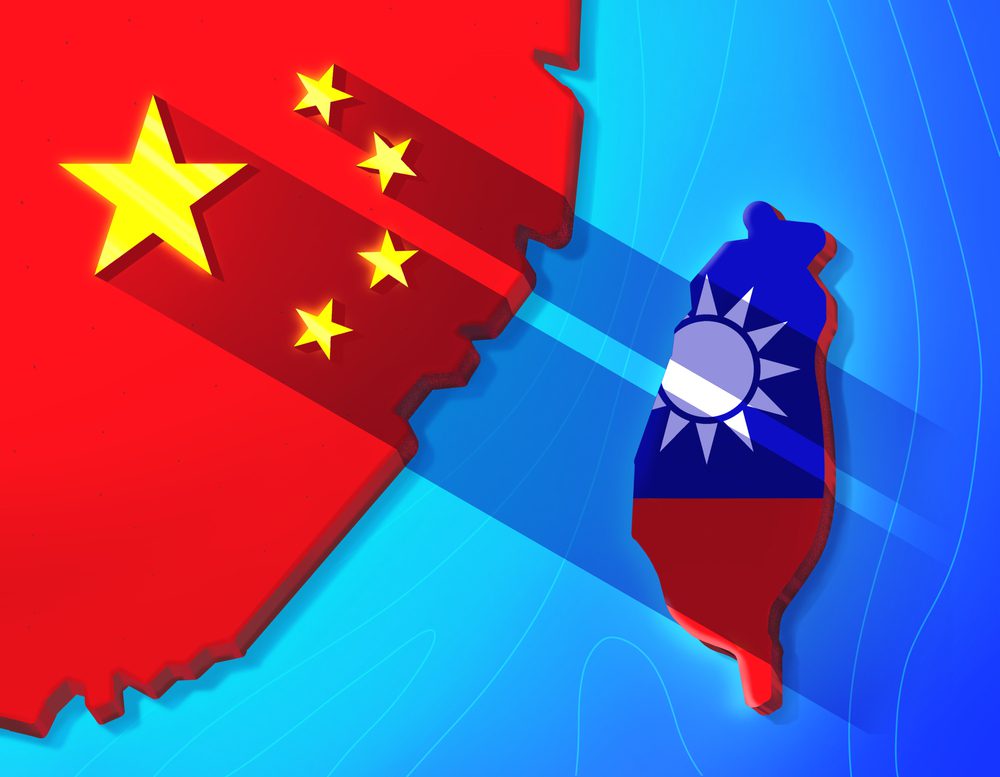
A delegation from the Inter-Parliamentary Alliance on China (IPAC), amongst which are two EU lawmakers currently sanctioned by Beijing, arrived in Taiwan’s capital of Taipei on November 1st. Against a backdrop of ever-mounting tensions with China, the visit revolves around trade, investment, and technology.
In an earlier statement to Politico, Reinhard Butikofer, who heads the delegation and is chair of the EU commission for relations with the People’s Republic of China (PRC), outlined the visit as having “very practical ambitions.”
After their 4-day visit, he continued, they “will return from Taiwan with an even clearer picture of what needs to be done in our respective legislatures, and we won’t rest until we have achieved them.”
The 12-member delegation—which includes parliamentarians Sjoerd Sjoerdsma (Netherlands), Mykola Kniazhytskyi (Ukraine), Els Van Hoof (Belgium), Avdullah Hoti (Kosovo), Eva Decroix (Czech Republic), and Judith Cummins (U.K.)—is expected to meet with top Taiwanese officials, including President Tsai Ing-wen, Premier Su Tseng-chang, and Foreign Minister Joseph Wu.
A visit to the legislature as well as talks with the Mainland Affairs Council and the Ministry of Economic Affairs are also envisioned. More importantly, the group will explore a deepening of economic and trade ties in various roundtable meetings with the European Economic and Trade Office, the European Business Council in Taiwan, and other related business associations. Cooperation in high-tech industries, supply chain security, and other fields is also on the agenda.
Last August, IPAC condemned the live-fire drills China had launched that summer in response to U.S. House Speaker Nancy Pelosi’s ‘provocative’ visit to Taiwan, which it views as a breakaway province. China’s continued aligning with Russia as it prosecutes its war in Ukraine has only served to make Western alarm more acute.
Kniazhytskyi, the Ukrainian member of the delegation, noted that “Ukraine and Taiwan have a lot in common.” He stressed how “dependency on Russia landed us and the world in a major crisis. We are sleepwalking into the same thing with Taiwan.”
IPAC defines itself as an “international cross-party group of legislators working towards reform on how democratic countries approach China,” and is drawn from “a representative cross-section of the world’s major political parties.” Citing the importance of a “free, open, and rules-based international order,” it calls for Beijing to be held to its standards.
Increasingly, Beijing (much like Moskow) is taking issue with being lectured in this way. With its stated mission, IPAC has therefore made itself quite unpopular with the Chinese Communist Party (CCP), which—under President Xi Jinping, who now has entered a never-before-seen third term after its 20th Party Congress—seems to be going back to its roots under Mao, its founding father.
In a Global Times article (a state-funded news outlet generally representative of the CCP’s views), the organization is described as “trying to unite parliamentarians from Western countries to boycott the Chinese mainland on affairs related to Taiwan, Xinjiang, and Tibet regions,” and to “further play the ‘human rights card’ for slandering China.”
Last March, both Butikofer and Sjoerdsma were blacklisted by China for their condemnation of Beijing’s human rights violations.
During the CCP Congress, Beijing formally adopted a more aggressive stance on Taiwan. Instead of “building solidarity,” it now strives to “resolutely oppose and constrain Taiwan’s independence.” It follows the warning cries uttered in recent weeks by various U.S. officials; among them, Secretary of State Antony Blinken. They suspect China of having set its plans for the use of force against Taiwan “on a much faster timeline” than anticipated.
In an effort to dissuade Beijing, the U.S. has struck a deal with Australia to host more of its B-52 bombers, which can carry nuclear as well as conventional weapons, bringing the total amount to six.
Commenting on the news, Chinese Foreign Ministry spokesperson Zhao Lijian told reporters at a briefing that these U.S. decisions “have increased regional tensions, seriously undermined regional peace and stability, and may trigger an arms race in the [Indo-Pacific]region.” Self-ruled Taiwan, understandably eager for a firm commitment from allies, meanwhile has to take into account some hesitation on the part of Western nations—visits considered too ‘high-level’ are doubtful, since they might compromise the “One China” pledges made to Beijing.
To that end, EU member countries have been called upon by the bloc’s foreign policy arm to work on “de-escalation and dissuasion,” so as to avoid a Chinese invasion of the island—which, while a threat to its sovereignty, could spell disaster for the export of advanced microchips to Europe, as Taiwan furnishes nearly 90% of them.
